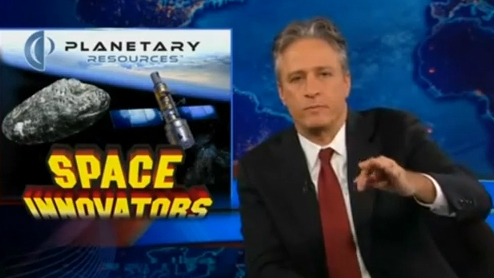Sign up for Big Think on Substack
The most surprising and impactful new stories delivered to your inbox every week, for free.
As I wrote last year in a chapter at the Oxford Handbook of Climate Change & Society, the imagined public relative to climate change remains a source of ever growing anxiety among scientists and advocates for climate action. The focus typically is on how much the imagined public does not understand or know about climate change, the perceived ‘gap’ or ‘divide’ between liberals and conservaties at the ideological tail ends of the issue, and a binary framing of the public into opposing camps of believers and “deniers.”
Yet these relatively simplistic interpretations overlook the complex nature of public opinion, stigmatize and denigrate “the other,” and ignore the need to examine public preferences across a plurality of social background variables other than just ideology. When we do this, we find many perceptions and policy preferences that strong majorities of Americans share, regardless of political orientation.
But as Simon Kuper of the Financial Timesobserved last year , it seems far too easy to shout at “deniers” and communicate with a like-minded echo chamber of people who already agree with us than to do the hard work of bringing to light the many shared beliefs and preferences of the public, fashioning policy compromises that are in line with those preferences, and telling stories about climate change that are personally relevant and engaging.
The latest evidence of a pragmatic caucus among Americans on climate change comes from the Yale/GMU periodic surveys on climate change. It’s this type of complexity we should be discussing while focusing on ways to effectively engage diverse segments of the public, rather than what has become an almost obsessive focus on the presumed pathologies of conservative psychology and “denialism,” a bloggers’ term from the 2000s that has now come to ubiquitously frame mainstream discussion, doing much damage.
We could all benefit from taking a moment to reflect on the wisdom of E.O. Wilson. As Wilson told Bill Moyers in a 2007 interview about his book The Creation, if religious conservatives and mostly secular scientists and environmentalists, “sat down and talked about our deepest beliefs together, we’d come up with more agreements. Agreements on more things than disagreements. And then isn’t it the American way? We could say, ‘Let’s put that aside for awhile and work together when we really have something we need to work together on.'”
From the executive summary to the Yale/GMU survey released today:
Overall, majorities of Americans say that global warming and clean energy should be among the nation’s priorities, want more action by elected officials, corporations and citizens themselves, and support a variety of climate change and energy policies, including holding fossil fuel companies responsible for all the “hidden costs” of their products. A majority also say they would be more likely to vote for a candidate who supports a “revenue neutral” tax shift from income taxes to fossil fuels, and that global warming will be one of the issues that determines their vote for President this fall.
Issue Priority
72 percent of Americans think that global warming should be a very high (12%), high (28%), or medium (32%) priority for the president and Congress. Among registered voters, 84 percent of Democrats, 68 percent of Independents, and 52 percent of Republicans think global warming should be a priority.92 percent of Americans think that developing sources of clean energy should be a very high (31%), high (38%), or medium (23%) priority for the president and Congress. Among registered voters, 96 percent of Democrats and Independents, and 84 percent of Republicans think clean energy should be a priority. 83 percent of Americans think that protecting the environment either improves economic growth and provides new jobs (58%) or has no effect on economic growth or jobs (25%). Only 17 percent think it reduces economic growth and costs jobs.When there is a conflict between the two, however, 62 percent of Americans say it is more important to protect the environment, even if it reduces economic growth, while 38 percent say economic growth is more important, even if it leads to economic problems.Among registered voters, 91 percent of Democrats, 77 percent of Independents, and 70 percent of Republicans think that overall, protecting the environment either improves economic growth and provides new jobs, or has no effect on economic growth or jobs. When there is a conflict between the two, however, 72 percent of Democrats, 63 percent of Independents, and 45 percent of Republicans say it is more important to protect the environment than economic growth.Support for Climate & Energy Policies
More than two-thirds of Americans (68%) say the U.S. should make either a large-scale or medium-scale effort to reduce global warming, even if this has large or moderate economic costs.A large majority of Americans (79%) supports funding more research into renewable energy sources. Among registered voters, 91 percent of Democrats, 80 percent of Independents, and 74 percent of Republicans support this policy. However, perhaps due in part to news stories about Solyndra, “strong support” for more research into renewables fell from 53 percent in the fall of 2008 to 36 percent in March 2012. Meanwhile opposition to renewable energy research more than doubled, from 8 percent in 2008 to 21 percent in 2012.76 percent support providing tax rebates for people who purchase more fuel-efficient vehicles or solar panels. Among registered voters, 89 percent of Democrats, 76 percent of Independents, and 63 percent of Republicans support this policy.75 percent support regulating carbon dioxide as a pollutant. Among registered voters, 84 percent of Democrats, 77 percent of Independents, and 67 percent of Republicans support this policy.65 percent of Americans support an international treaty requiring the U.S. to cut carbon dioxide 90% by the year 2050. Among registered voters, 78 percent of Democrats, 64 percent of Independents, and 42 percent of Republicans support this policy.63 percent support requiring utilities to produce at least 20% of their electricity from renewable energy sources, even if household costs increase by $100 a year. “Strong support,” however, has decreased from 31 percent in 2008 to 20 percent now. Among registered voters, 74 percent of Democrats, 65 percent of Independents, and 47 percent of Republicans support this policy.63 percent say the U.S. should act on its own to reduce greenhouse gases, regardless of what other nations do. 62 percent support expanded offshore drilling for oil and natural gas off the U.S. coast. Likely due to the BP oil spill, however, “strongly support” for expanding offshore drilling for oil and natural gas off the U.S. coast has fallen from 37 percent in 2008 to 24 percent nowSee Also:
NOAA Lecture on Engaging Americans on Climate Change
Re-Framing Climate Change as a Public Health Problem
A Post-Partisan Plan to Engage the Public on Climate Change
Sign up for Big Think on Substack
The most surprising and impactful new stories delivered to your inbox every week, for free.







